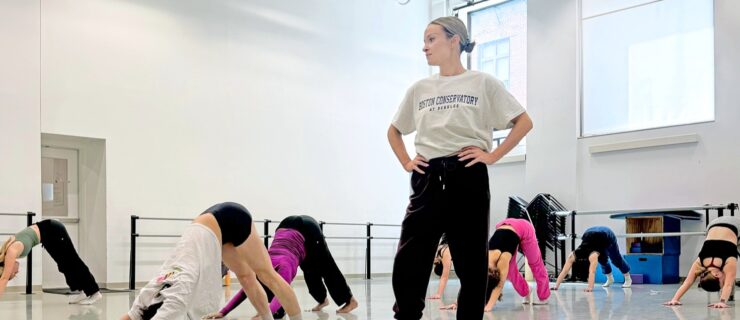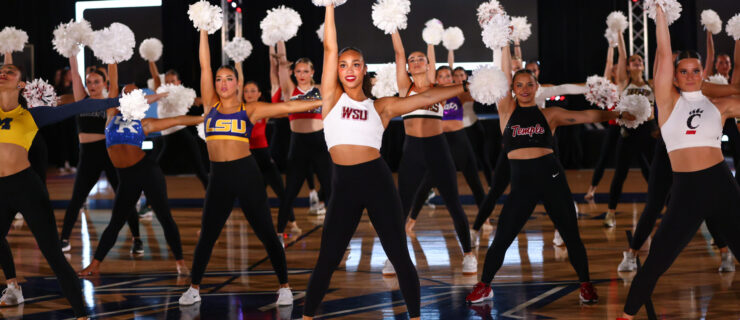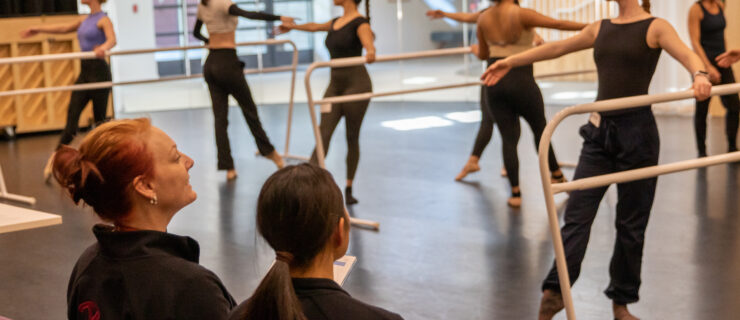Is Early Decision/Early Action the Right Choice for Your College Dance Career?
It’s that time of year for high school seniors: early decision/early action season. Your guidance counselor at school might have already recommended these options to you—but just as the college admissions process is more complicated for dancers overall, you’ll also need to think carefully before deciding whether or not you want to jump ahead of the regular admissions timeline. To help you decide, we enlisted the help of Dr. Elizabeth Stone (executive director of Campanile college admissions counseling) and Sara Pourghasemi (director of college counseling at the Professional Performing Arts School in NYC).
What Do “Early Decision” and “Early Action” Mean?
Note that schools are not kidding about “early”: The most common deadlines for submitting an ED/EA application are November 1 or 15. The university then notifies you of your application status mid- to late December.
“The primary difference between early decision and early action is that ED is binding,” Stone explains, “meaning that you sign a commitment to attend the school if admitted, and you formally withdraw all other applications in process.” Early action, in contrast, allows you to apply to (and get a decision from) multiple colleges ahead of the normal application cycle, but without having to sign on with any one college before May. Some schools also offer early decision II, which follows the same January deadline as regular admission but gives you an answer in February. Just like with ED I, you absolutely must commit to attending that school if you’re accepted.

If you’re considering early decision/early action, make sure to get a head start on those applications. (Getty Images)
What Should Dancers Consider?
First of all, note that very few dance programs offer early auditions. Translation: “Just because you get in early academically doesn’t mean you’re getting in for dance,” Pourghasemi says. If your heart is set on a specific BFA dance program (admission to which of course isn’t guaranteed), you’re better off applying on the normal timeline.
On the other hand, let’s say that you’ve fallen completely in love with a BA dance program that doesn’t require an audition. If academic admission to that college is competitive, it might actually work to your advantage to apply ED, Pourghasemi says: “Colleges—especially small liberal-arts schools—are moving to accept more and more students from the early-admission pool over the regular pool. That’s not every college, but to be more competitive or to be part of the competition, applying early has its advantages.”
Stone cautions that “generally, ED is not a great deal for dancers who are looking for a generous financial-aid package, because you don’t know what other schools would have offered you.” Because ED essentially tells a university that they’ve “got” you, you don’t have much negotiating power should the financial-aid decision not meet your family’s needs.

That feel when you get accepted to your dream dance program. (Getty Images)
Making Your Decision
Pourghasemi recommends applying via early action to your top four to six choices, so you can adjust your January/February audition tour (and springtime campus visits, if possible) accordingly. “Early action is advantageous for any dancer who’s prepared and motivated to submit everything earlier,” Pourghasemi says. “That means you have a refined and well-spoken essay, at least one impressive standardized-test score, letters of recommendation that you know will be in on time, and dance-related materials fully prepped and rehearsed.”
One caveat: Both counselors advise against applying early just for the sake of getting the whole application process over with. “You need to have done a lot of soul-searching junior year about what kind of dance career you want, and therefore what you want in a dance department,” Stone says. “One of the biggest mistakes I see dancers making is adding a college last-minute because they just found out about it, or a friend is applying there,” Pourghasemi adds. “It doesn’t do you any service to rush an application when you’re not prepared to present your best self academically and artistically.”




